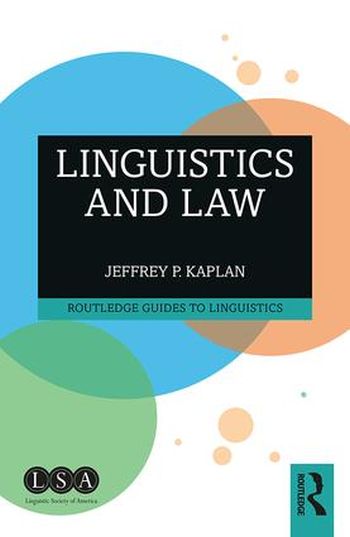We are now closed for the Christmas and New Year period, returning on Monday 5th January 2026. Orders placed during this time will be processed upon our return on 5th January.

Linguistics and Law offers a clear and concise introduction to making sense of the law through linguistics. Drawing on lexical semantics, syntax, and pragmatics to interpret both written and spoken laws, this book: